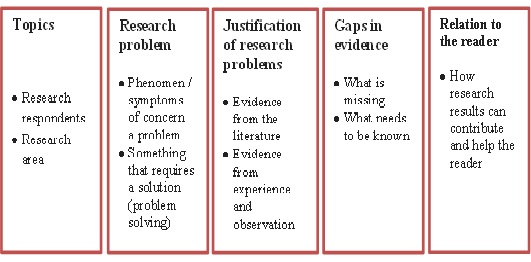
The Analysis of Early Childhood Teachers’ Pedagogical Content Knowledge
Abstract
Keywords
Full Text:
PDFReferences
Alatas, H. I., Brinkman, S., Chang, M. C., Hadiyati, T., Hartono, D., Hasan, A., Hyson, M., Jung, H., Kinnell, A., Pradhan, M., & Roesli, R. (2013). Early Childhood Education and Development in Poor Villages of Indonesia: Strong Foundations, Later Success. World Bank. https://doi.org/10.1596/978-0-8213-9836-4
Atay, D., Kaslioglu, O., & Kurt, G. (2010). The pedagogical content knowledge development of prospective teachers through an experiential task. Procedia-Social and Behavioral Sciences, 2(2), 1421–1425.
Babbie, E. R. (2009). Fundamentals of Social Research. 526.
Burger, K. (2015). Effective early childhood care and education: Successful approaches and didactic strategies for fostering child development. European Early Childhood Education Research Journal, 23(5), 743–760. https://doi.org/10.1080/1350293X.2014.882076
Council, N. R. (1996). National science education standards. National Academy of Sciences.
Darling-Hammond, Linda & Bransford, J. (2005). Preparing Teachers for a Changing World. Jossey-Bass.
Darling-Hammond, L. (2011). Teacher quality and student achievement. Teacher Quality and Student Achievement, 8(1), 1–215. https://doi.org/10.14507/epaa.v8n1.2000
Depaepe, F., Verschaffel, L., & Kelchtermans, G. (2013). Pedagogical content knowledge: A systematic review of the way in which the concept has pervaded mathematics educational research. Teaching and Teacher Education, 34, 12–25. https://doi.org/10.1016/j.tate.2013.03.001
Guerriero, S. (2013). Teachers’ Pedagogical Knowledge and the Teaching Profession: Background Report and Project Objectives.
Harlen, W., & Holroyd, C. (1997). Primary teachers’ understanding of concepts of science: Impact on confidence and teaching. International Journal of Science Education, 19(1), 93–105.
Hartini, T. (2016). The Implementation of Beyond Centers and Circle Times (BCCT) in Early Childhood Education. 28–30. https://doi.org/10.2991/icemal-16.2016.76
Jones, A., & Moreland, J. (2017). Considering pedagogical content knowledge in the context of research on teaching: An example from technology. Waikato Journal of Education, 9(0), 77–89. https://doi.org/10.15663/wje.v9i0.387
Loewenberg Ball, D., Thames, M. H., & Phelps, G. (2008). Content knowledge for teaching: What makes it special? Journal of Teacher Education, 59(5), 389–407. https://doi.org/10.1177/0022487108324554
Lucenario, J. L. S., Yangco, R. T., Punzalan, A. E., & Espinosa, A. A. (2016). Pedagogical Content Knowledge-Guided Lesson Study: Effects on Teacher Competence and Students’ Achievement in Chemistry. Education Research International, 2016, 1–9. https://doi.org/10.1155/2016/6068930
Manurung, K. (2012). Creative Teachers and Effective Teaching Strategies That Motivate Learners To Learn *. Indonesian Journal of Science Education, 2(1), 1–8.
Marks, R. (1991). When Should Teachers Learn Pedagogical Content Knowledge ? Paper presented at AERA annual conference Chicago , April 1991. Ll.
Moloney, M. (2010). Professional identity in early childhood care and education: Perspectives of pre-school and infant teachers. Irish Educational Studies, 29(2), 167–187. https://doi.org/10.1080/03323311003779068
Novianti, R. (2012). Teknik Observasi bagi pendidikan anak usia dini. Educhild, 01(1), 22–29.
Novianti, R., Puspitasari, E., & Chairilsyah, D. (2013). Pemetaan Kemampuan Guru Paud Dalam Melaksanakan Asesmen Perkembangan Anak Usia Dini Di Kota Pekanbaru. Sorot, 8(1), 95–104. https://doi.org/10.31258/sorot.8.1.2353
Odumosu, Olisama, Areelu, F. (2018). Teachers’ Content And Pedagogical Knowledge On Students’ Achievement In Algebra Odumosu. International Journal of Education and Research, 6(3), 83–94.
Ogar, M. N. (2006). Instructional Media, Learner, Teacher and Classroom Factors as Correlates of secondary school students learning outcomes in English language. Unpublished Ph. D Thesis, University of Ibadan, Ibadan, Nigeria.
Olfos, R., Goldrine, T., & Estrella, S. (2014). Teachers’ pedagogical content knowledge and its relation with students’ understanding. Revista Brasileira de Educacao, 19(59), 913–944. https://doi.org/10.1590/S1413-24782014000900006
Rahman, M. H. (2014). Professional competence pedagogical competence and the performance of junior high school of science teachers. Journal of Education and Practice, 5(9), 75–80. http://www.iiste.org/Journals/index.php/JEP/article/view/11868
Rohita, R., & Sekarlawu, H. H. (2019). Understanding of Kindergarten Teachers of the 2013 Curriculum of Early Childhood Education. 306(Isseh 2018), 167–171. https://doi.org/10.2991/isseh-18.2019.38
Shulman, L. S. (1986a). Those who understand: A conception of teacher knowledge. American Educator, 10(1).
Shulman, L. S. (1986b). Those Who Understand: Knowledge Growth in Teaching. Definicion, 15(2), 1. https://doi.org/http://www.jstor.org/stable/1175860
Sousa, A. (2011). Building pedagogical content knowledge in visual arts curricular didactic: an empirical study. Procedia-Social and Behavioral Sciences, 11, 136–140.
Sugiyono, P. (2017). Metode Penelitian Pendidikan: Pendekatan Kuantitatif, Kualitatif, R&D. Cetakan Ke-25. Bandung: CV Alfabeta.
Tebabal, A., & Kahssay, G. (2011). The effects of student-centered approach in improving students’ graphical interpretation skills and conceptual understanding of kinematical motion. Latin-American Journal of Physics Education, 5(2), 9.
DOI: http://dx.doi.org/10.31258/jes.4.2.p.404-413
Refbacks
- There are currently no refbacks.
Copyright (c) 2020 Ria Novianti, Febrialismanto Febrialismanto

This work is licensed under a Creative Commons Attribution 4.0 International License.
Publisher: FKIP Universitas Riau












